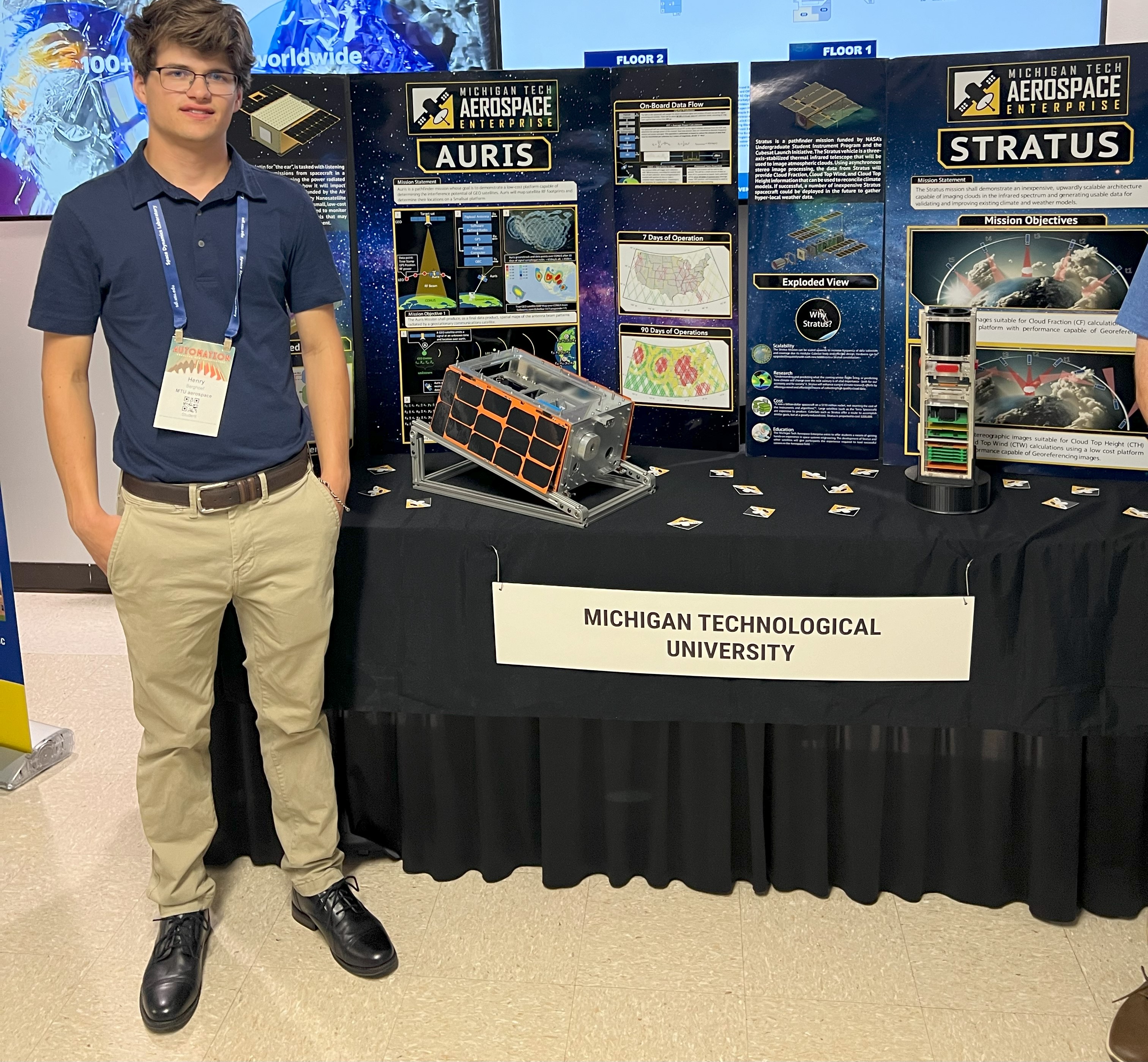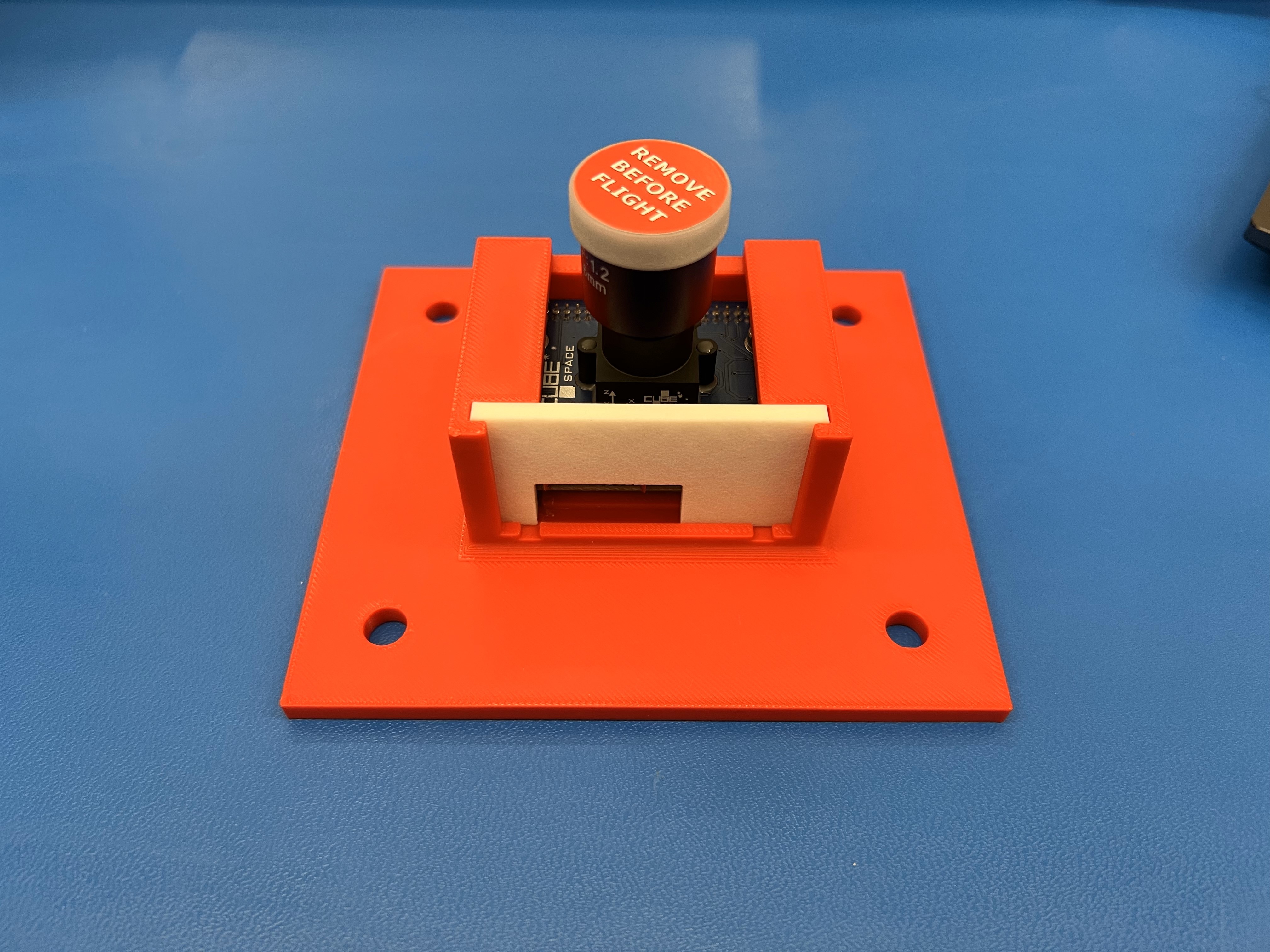
As a member of Michigan Tech’s Aerospace Enterprise, I serve as the Team Lead for the Attitude Determination and Control (ADC) subteam. The Enterprise is currently building two satellites: Auris, a 12U CubeSat, and Stratus, a 3U CubeSat.
Stratus, funded by NASA under the CubeSat Launch Initiative (CSLI) program, focuses on demonstrating low-cost alternatives to large weather satellites. It performs cloud imaging to collect cloud fraction data. However, as Stratus is a secondary project for the Enterprise, much of its work, including the ADC system, has been outsourced.
Auris is our primary focus and a technology demonstrator for the Air Force, funded by AFRL's University Nanosatellite Program. This project has been entirely student-proposed, designed, and constructed. Auris is currently in its integration phase, where my subteam plays a crucial role in testing and verifying components for the spacecraft's Attitude Determination and Control system.
In my role, I lead a team responsible for integrating Commercial Off-The-Shelf (COTS) components from CubeSpace into our ADC solution. We verify hardware functionality and run tests inside a class 100,000 cleanroom. Our work includes testing actuators and sensors, running hardware-in-the-loop simulations, and ensuring that the flight software performs as expected. We collaborate closely with other subteams to ensure successful system integration.
As Team Lead, I am also responsible for organizing and running weekly team meetings, where I review progress, assign tasks, and facilitate communication between subteams. Additionally, I attend weekly Project Update meetings to report on the ADC system’s status and ensure smooth collaboration with other Team Leads across the Enterprise.


The Mechanical Engineering Practice (MEP) program at Michigan Tech is a series of hands-on courses designed to give students critical engineering experience. Through MEP 1 and MEP 2, I worked on a variety of projects that developed my skills in design, analysis, and teamwork.
In MEP 1, I completed several short projects, including:
In MEP 2, I worked on two team-based projects over the course of the semester:
We adapted an existing crane design for a cargo loading application, using simulations and scale model testing to optimize the system. My team determined the PID controller parameters for reducing swing motion, and we designed a safety link to protect the crane’s components by breaking under excessive load.
In this project, we modified an air handling unit to be used in a mobile neonatal intensive care unit, which provides disaster relief when hospitals are non-operational. This involved understanding flow meters like orifice plates and Venturi meters, and we followed ASME MFC-3M-2004 standards to create MATLAB scripts for calculating flow rates and pressure differentials.
We characterized the AHU’s performance using pressure, flow rate, and thermal sensors to ensure the unit met the stringent requirements of the mNICU. Key challenges included:
After extensive testing and analysis, we configured the AHU to meet all requirements, optimized the PID controller values, and successfully demonstrated the system’s performance in a final presentation.
Below I have included the end of semester Portfolio assignment from MEP 2. This also contains the MEP 1 portfolio assignment. This PDF includes several assingments from the class in greater detail.